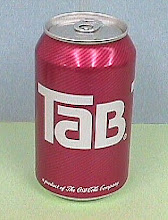In my first "Primary The President" post, on November 16, I quoted Conservative columnist Michael Gerson, who says a Republican must run against Donald in the 2020 primaries. (Read it here.)
Now political scientist Jonathan Bernstein looks at the possibility of a serious nomination challenge:
It’s true that the last four presidents to be re-elected all dipped below 45 percent approval at some point between the midterms and the presidential election. Ronald Reagan got as low as 35 percent in early 1983 before winning 49 states the next year. The problem for Trump is that there’s no reason to expect his current numbers to improve significantly, and it probably wouldn’t take much for him to return to his 2017 lows.
If that happened, the chances of a serious nomination challenge would increase rapidly. A 40 percent approval rating seems like a rough line dividing incumbents who get renominated by acclamation and those, such as Jimmy Carter and George H.W. Bush, who have to overcome serious threats. Although such a challenge would be unlikely with a president who seemed competitive, it certainly could happen if Trump looked like he was about to get clobbered in a general election and bring the whole party with him. After the midterms, it’s hard to believe many Republicans still think Trump is immune from the normal laws of politics. Nomination challenges don’t cause re-election weakness; it’s the other way around.
Meanwhile, we’re entering a period of real danger for Trump, in which the incentives for elite Republicans to support him will be weaker than they’ve been at any time since he clinched the nomination. If he runs into further trouble in the next six to 10 months, he might find less loyalty from his party than usual, which in turn could push his approval numbers lower and make a serious nomination challenge more likely. Of course, it’s possible that the administration won’t run into any new scandals or otherwise create bad news out of nothing. Possible. But not likely. (Read the article here.)
Subscribe to:
Post Comments (Atom)


No comments:
Post a Comment